Here’s the funny thing about social media, you don’t own it, and you cannot control what happens to your content on it.
For starters when you put your content up on social media it automatically becomes open to criticism, scrutiny and your business on a social media platform is always subject to internet trolls.
You also cannot control what a company of social media platform decides to do – you could wake up in the morning and realise an entire platform has changed like Instagram and Facebook which seem to change every other minute.
Then there are also internal and external factors directly related to your brand or company that affect how audiences can perceive and react to your presence online.
What is a social media crisis?
How can one define when they are going through a social media crisis? What and who does it involve or concern?
All very valid questions especially with the ever-changing social media horizon.
Simply put, a social media crisis is an online situation that has, or risks having, a negative and long-term impact on your business or organisation’s reputation and bottom line (RavenTools, 2012).
I believe, in 2017 a social media crisis goes beyond an online situation but more so your everyday operation. Here’s why social media and the way audiences are currently interacting with social media is defining how we are building campaigns and voicing said campaigns. Imagery and creative, now more than ever have a substantial impact on the success of a campaign and are also often the trigger points for a social media crisis.
What do I mean by this? Well, let’s just look at Instagram and how audiences are interacting on there. Brands purposefully are adopting an “Instagram worthy” aesthetic to appeal to their intended Instagram audience.

This campaign by Urban Decay garnered all the media and public attention but not for the right reasons.
The campaign was highlighted Urban Decay’s new products, “Razor Sharp” eyeliner.
The campaign imagery took a technique out of the beauty blogger world – beauty bloggers often swatch products like this to showcase the variety of colors in product ranges and how they look on different skin tones and showcase the entire range.
Theoretically, this was all planned right. The creative was intuitive and made sense in the current social media context. The name was true to the product, but together this may not have been that well thought through.
Below is just some of the backlash that Urban Decay received.
The campaign started trending on Twitter and Instagram and of course, generated several media stories online throughout the next 48hours.
This is just one way how Urban Decay responded.
Urban Decay’s situation demonstrates how a social media crisis in 2017 goes beyond an online position but more so your everyday operation. Scholarly and case study research has proven that audiences now more than ever are intrusive and want to know what is happening and be involved.
So what is the answer to surviving a social media crisis?
First and foremost it requires building a loyal brand online and offline. What if your Instagram were to stop running tomorrow suddenly? This is a social media crisis. Or what if your highest ROI source, say banner ads were not converting, this is a social media crisis. What if your campaign takes on a negative turn? How would you respond to negative PR, online?
At different stages of your business, these are all forms of a social media crisis.
1. Always think about your omnichannel
This works along the lines of NOT putting all your eggs in the same basket.
Always think about closing the gaps of how your customer will see you offline and how they will reach you online and how they will travel with your brand online.
2. Prepare for your worst even when you are booming
Like saving money for a rainy day- take time to sit with your PR and marketing teams and understand how your business is represented and perceived online. Brainstorm scenarios where you could receive backlash or even how to go about tackling negative comments and permanently equip yourself and company with a social media guideline.
3. Have a backup
You don’t own social media. Is your website receiving enough organic traffic? Are you building a consistent mailing list of loyal customers? These are two online platforms that you own and control.
4. Campaign strategy
Within your campaign part of your time during creation should be devoted cornering to the hypothetical situations that could instigate a social media crisis. Social media is a strategic world where time is of the essence. But referring back to step 1 and 3 – take the time to have a social media guidelines for your business.
5. Respond in a timely fashion
Should a social media crisis unravel, be intuitive and know when you have to address it. Don’t be hasty because nothing ever leaves the internet and remember to have trust in your team. Backtrack and understand why you would have gotten into this situation. Have a look at Urban Decay’s response, they went back to their core message and explained their intent – this is why outlining a robust campaign strategy is vital – it prepares you.
Last but not least, brands that have overcome a social media crisis are ones that have remained authentic through their crisis and referred to core messages that have cemented their brand to keep rebuilding and garnering loyalty from their audience.



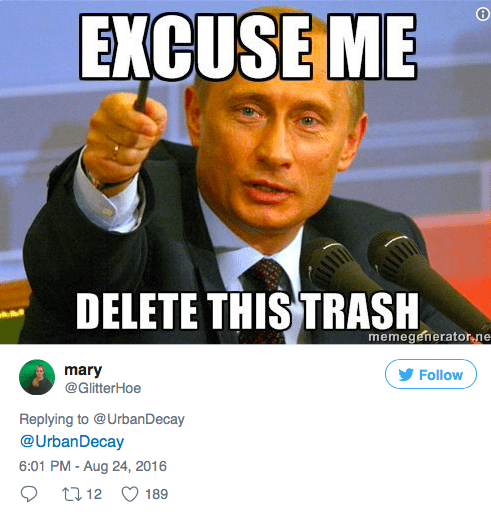
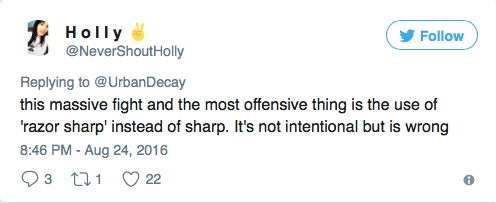
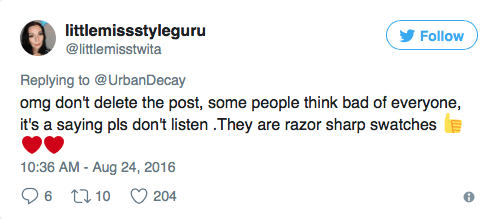
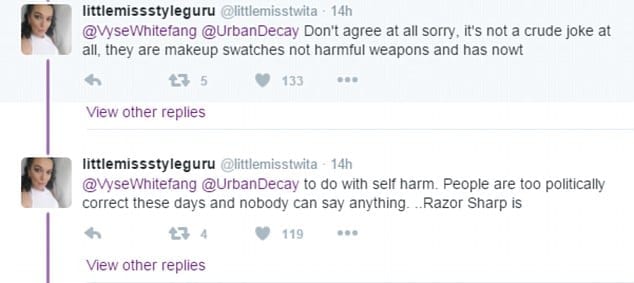
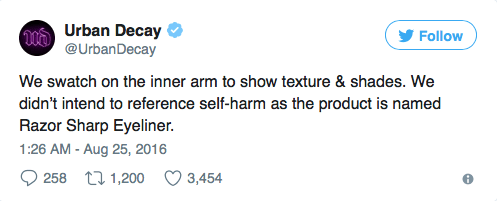

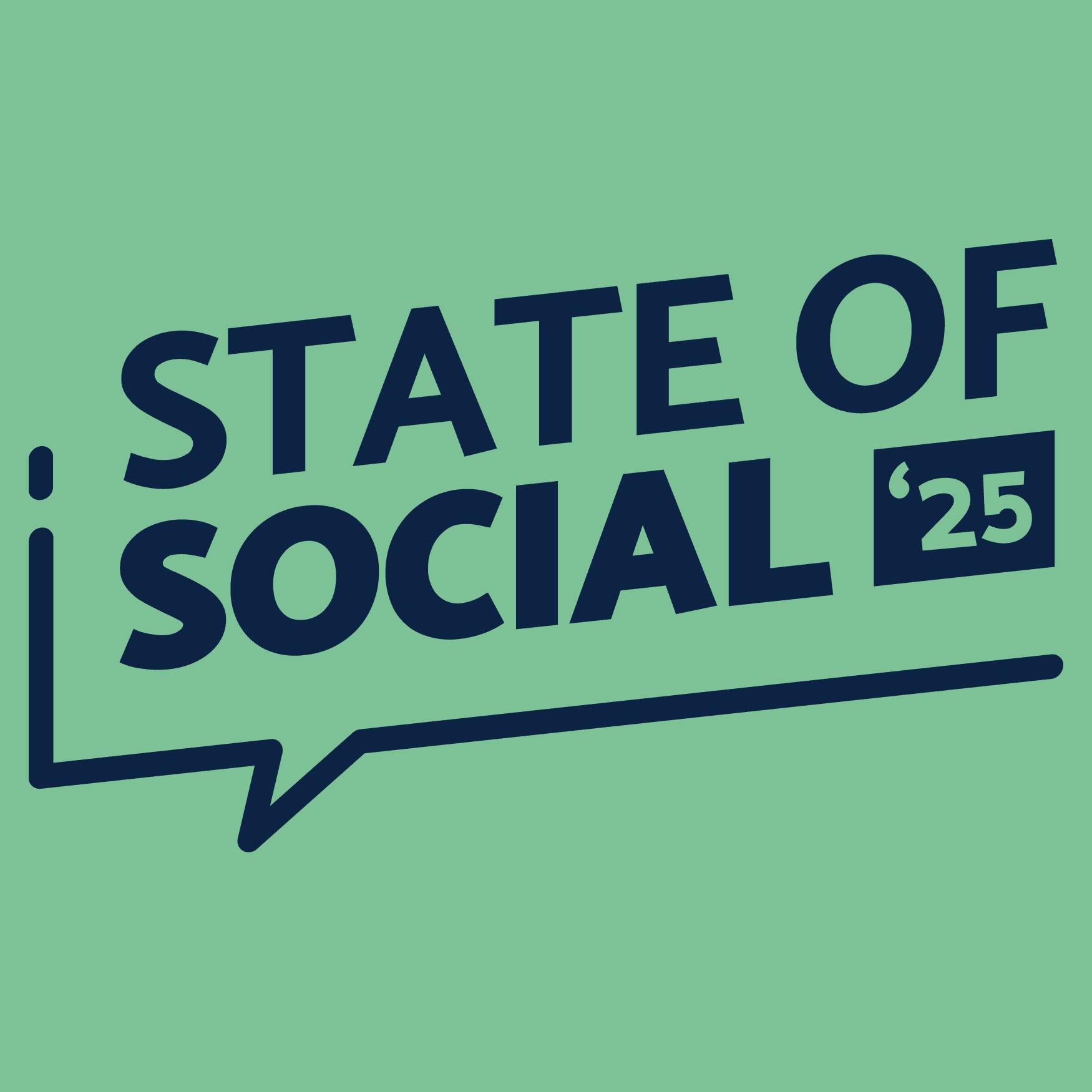




LET’S CONNECT